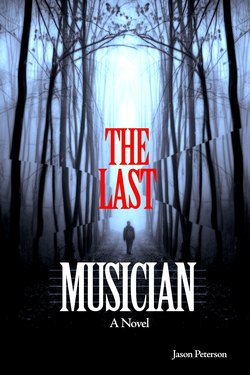Читать книгу The Last Musician - Jason Peterson - Страница 4
На сайте Литреса книга снята с продажи.
2
ОглавлениеAlmost exactly thirteen years before The Great Silence (as Greenwoodians were starting to refer to the inexplicable event), a baby in a basket had been found on the edge of the forest near the main entryway to Greenwood by a Mrs. Ethel Snider.
Mrs. Snider, a widowed, childless woman around the age of sixty (though she never would tell anyone her actual age), was going for her morning walk when she saw it.
She later told anyone who would listen that immediately before she spotted the basket, she had seen a blur shoot out of the forest and back again. No one quite believed her of course, but then again, she had found a baby in a basket, so who was to say?
The baby became the light of Ethel Snider’s life. Her friends tried to convince Ethel to give the baby up to a young family to raise him, but Ethel would hear none of it. He was a gift to her, she would say, and if she was given this precious gift, then she would also be given the strength and longevity to raise the boy.
After Greenwood’s elders approved her adoption, she named him Kristoffer, after her beloved late husband, and set about the task of raising him the best way she knew how.
None of this, of course, was on anyone’s mind as they sat in Greenwood’s giant town hall waiting on one of the elders to speak. They gossiped and theorized and speculated and worried.
“I’ll bet its God’s punishment for Edie Westerboum’s voice. He finally had enough.”
“Maybe it’s a disease. What’s the thing that happens in your throat? Larynmidas?”
“That’s the dumbest thing I’ve ever heard. It’s not just voices, you know. And it’s laryngitis. Larynmidas would be if your throat turned into gold.”
“Good one, Val.”
“But what does it all mean?”
“Maybe it’s Urizen.”
“Please don’t say that name,” someone said.
“What?”
“Urizen!”
The crowd hushed at once.
The council of elders slowly began arriving to the stage. Because of the rush to get there, the five elders were not wearing their usual robes, though no one seemed to care.
Carl Anderson, Greenwood’s chief elder, spoke first. While no one in the crowd noticed the lack of Carl’s official robes, everyone noticed his awful toupee, which was perched on top of his usually combed-over head. The ridiculousness of his appearance broke some of the tension building throughout the hall.
“Thank you all for coming,” Carl said as he unconsciously patted the top of his head. He thought the snickers and guffaws around him were caused by nervousness and fear, not his toupee, which he thought made him look ten years younger.
“I know you’re all concerned about what is going on. We, the Council of Elders, are concerned as well. We do not know much about what happened, but this is what we do know: at approximately 11:30 this morning, people ceased to be able to play or sing music of any kind.”
He paused, and the murmuring was replaced by an eerie silence.
“We don’t know why this happened, what it means, or if music will suddenly return as quickly as it disappeared.”
Edward Rogers, an elder and the bass in Joe’s Actual Barbershop Quartet, spoke next. He squeezed his large frame out of his chair and waddled to the front of the stage, carrying a few instruments with him.
“Is there anyone here who can still play or sing?” He strummed a ukulele, and, like every other instrument played since the music stopped, it made no sound.
“What I find so strange,” he said, “is it’s only music that’s gone. Not all sound.”
“What do you mean, Edward?” said another elder, Missy Davis. Her large, pointed glasses sloped down her pointy nose, and she pushed them back up.
“I haven’t tried out everything I’d like to,” Edward said, “but if I just hit the ukulele, you can hear it, right?”
He hit the instrument, and its sound rang throughout the hall.
“But if I try to play music, the sound disappears.”
He picked up a drum and gave it to Connie Scopes, another elder and an accomplished percussionist. Her gray hair had a streak of blue in it, and she pulled at it nervously.
“Connie, hit the drum like you’re just knocking on someone’s door.”
Connie did as she was asked, and the thump, thump, thump resounded.
“Now play me a groove.”
Some of the teenage Greenwoodians giggled at Elder Rogers’ use of the word “groove,” and were quickly hushed by their parents.
Connie began a simple, repeating groove on the drum, and to everyone’s amazement, though not their surprise after the rest of the morning’s events, no sound could be heard.
The only person who did not react to this incredible display was Horace Heckle, the oldest elder, who had not heard music, or anything else for that matter, for many years. He appeared to be sleeping on stage.
Carl Anderson stood once again and shifted the unruly batch of fake hair on his head.
“Thank you Edward and Connie,” he said. “I would like to repeat Elder Anderson’s question: is there anyone, anyone at all who can still play or sing? If there is, maybe we can figure out why no one else can.”
As Carl Anderson’s question echoed throughout the room, the huge door to the town hall slammed shut. Everyone inside, including Ethel Snider, who at that very moment was scanning the crowd for her son, turned to see who had entered.
It was Kristoffer.
He walked slowly toward the stage, and in a cocky tone that Ethel had never heard him use before said:
“I can still play music.”
